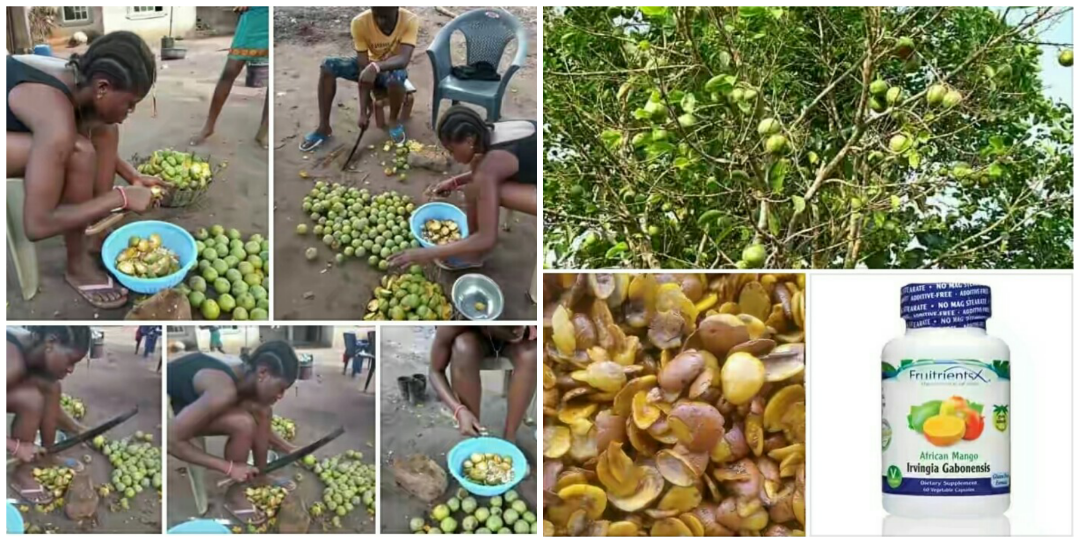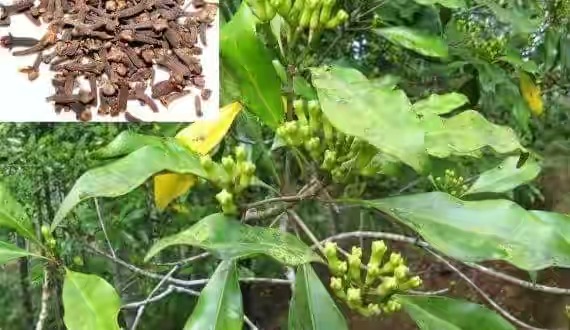Gastric (stomach) ulcers and their natural remedies
Stomach ulcers are mainly caused by the destruction of the mucous lining that is present in the stomach. The lining could be damaged by hydrochloric acid that is present in the digestive juices or by Helicobacter pylori, a bacteria which causes the infection. These could arise due to: contaminated food and water, smoking, chronic use of certain drugs like aspirin, stressful life, intake of highly processed foods, starving – this results in the stomach acid eating away the lining of the intestines.
DAILY TIPS TO BE FOLLOWED: 1) Eat only half stomach full and drink a quarter of remaining stomach with water; 2) Instead of having full meals three times a day, take small quantities of food very often; 3) Drink warm water after meals; 4) Do not lie down immediately after meals; 5) Reduce intake of hot coffee or tea; 6) Do not consume aerated/carbonated drinks; 7) Take foods that are rich in citrus and fibre. Fibre eases digestion, whereas citrus protects the stomach lining; 8) Drink as much water as possible during the day.
CONTRARY to popular belief, ulcers are not caused by stress or spicy foods, but rather by stomach infection with the bacterium Helicobacter pylori (H. pylori). This bacterium is the culprit in nearly 80% of stomach ulcers and in more than 90% of ulcers in the duodenum, the first portion of the small intestine. Most of the remaining ulcers are associated with the widespread use of pain killers known as non-steroidal anti-inflammatory drugs (NSAIDs), such as aspirin and ibuprofen. Cells in the stomach lining require chemicals known as prostaglandins to produce a thick coating of gelatinous mucus. This mucosal lining acts as a natural defense by keeping acid contained in digestive juices from burning the stomach wall and by preventing harmful bacteria from entering the bloodstream or lymphatic system. NSAIDs block the production of prostaglandins, thus relieving pain and inflammation but also leaving the stomach lining susceptible to ulceration and invasion by H. pylori. In the Western world, up to half of all people harbour H. pylori in their stomachs, as do even more people in undeveloped countries.
While infection with H. pylori often causes no symptoms, it can cause gastritis, or chronic inflammation of the lower stomach wall. This in turn results in increased acid production from the non-infected upper stomach, which creates favourable conditions for the erosion or ulceration of the mucosal lining in the stomach or duodenum. About 10-15% of individuals infected with H. pylori will eventually develop peptic ulcer disease.
When the upper region of the stomach is also infected with H. pylori, the resulting inflammation sets the stage for stomach cancer or a specific type of stomach lymphoma. Eradicating H. pylori is therefore important not only to avoid ulcers, but also to lower the risk for developing stomach cancer. Since the discovery of how H. pylori affects the stomach, conventional treatment for ulcers and H. pylori infection has focused on antibiotics to eradicate the bacteria, medication to suppress acid production in the stomach, and an agent to protect the stomach’s lining.
H. pylori is frequently difficult to eradicate, however, even with long-term use of these medications. Further, compounding the problem is that H. pylori often develops resistance to antibiotics, thus rendering treatment ineffective. As a result, alternative or complementary strategies to support stomach health are sorely needed.
Fortunately, health-conscious consumers in the world, especially in the United States can now access an effective, natural approach to restoring stomach health. Approved in Japan as a drug to treat ulcers, a novel ZINC-CARNOSINE compound has been found to strengthen the mucosal barrier, coat the stomach, and inhibit both the growth and damaging effects of H. pylori. These benefits of zinc-carnosine are enhanced by cranberry and licorice, two natural agents that also support gastric health while diminishing the effects of H. pylori.
One of the most time-honoured natural remedies for gastric upset is LICORICE ROOT, an herbal extract. Modern research confirms what herbal practitioners have known for centuries: that licorice promotes healing of the stomach’s lining. Licorice has long been known to help promote the healing of ulcers. Licorice-derived compounds have the effect of raising the local concentration of prostaglandins that promote mucous secretion and cell proliferation in the stomach, leading to healing of ulcers. Animal research suggests that licorice reduces the inflammatory response leading to ulcer formation by inhibiting the production of pro-inflammatory molecules, including interleukins and tumor necrosis factor (this substance hunts for cancer cell and kill them, but unfortunately, it can cause inflammation). The potent antioxidant activity of licorice also contributes to its anti-ulcer activity. Licorice extract does much more than promote healing of the stomach lining.
Even more important, various extracts of licorice have been shown to block the growth of H. pylori in laboratory studies, even of strains of the bacteria that are resistant to the antibiotic clarithromycin. Licorice extract’s effectiveness against clarithromycin-resistant strains has led scientists to propose that licorice may have a place as an alternative therapeutic agent against H. pylori.
Licorice also contains several beneficial flavonoid compounds that can inhibit the growth of H. pylori, including strains of the bacteria that are resistant to the antibiotics amoxicillin and clarithromycin. Unfortunately, high doses of compounds known as glycyrrhizinates, which are found in licorice, have been associated with various side effects, including high blood pressure, low blood potassium levels, hormonal changes, and diarrhoea. Scientists have found that these side effects can be avoided by removing glycyrrhizin from the licorice, without reducing the activity of licorice in alleviating ulcer symptoms and in blocking H. pylori growth. Licorice from which glycyrrhizinates have been removed is known as deglycyrrhizinated licorice. However, the above mentioned side effects may be eliminated by increasing the consumption of green leafy vegetables, which are rich in potassium.
CRANBERRY is another natural remedy against stomach ulcer.Cranberry has long been valued for its role in promoting the health of the urinary system. New evidence suggests that cranberry as well as mixtures of cranberry and other plant extracts inhibit the growth of H. pylori, most likely by inhibiting a bacterial enzyme and disrupting energy production. An exciting Chinese study suggests that cranberry may help fight H. pylori infection in adults. In the study, 189 adults with H. pylori infection were randomly assigned to receive two 250-ml juice boxes of cranberry juice or a matching placebo beverage daily. After 35 days, 14 patients (14.4%) from the cranberry juice treatment group and 5 (5.4%) from the placebo group tested negative for H. pylori. Since cranberry juice can help retard H. pylori infection in humans, it may be a promising new therapy for managing this infection without inducing the side effects commonly caused by antibiotics. Cranberry’s ability to stop the growth of H. pylori may in part reflect its high content of beneficial compounds that include proanthocyanidins and other antioxidants such as vitamin C and bioflavonoids.
In fact, the antioxidant potency of these proanthocyanidins is much stronger than that of even vitamin C or vitamin E, allowing these compounds to remove harmful free radicals while inhibiting enzymes needed for bacterial growth. Phytochemicals in cranberry extract may disrupt the structure and stability of H. pylori’s bacterial membrane by increasing its acid content and inhibiting an enzyme needed for energy metabolism. Many of these compounds appear to work together, producing a synergistic effect that is much greater than the sum of their parts.
CAPSICUM, also known as CHILLI is the fruit of various Capsicum species. It is widely used as a spice and, traditionally, it has been used internally for colic, flatulent dyspepsia, chronic laryngitis, insufficiency of peripheral circulation and externally for neuralgia. Capsaicin (the active pungent ingredient) has been used extensively as a probe to elucidate the function of sensory neurons in various organs and systems (including the stomach), because of its ability to excite and later defunctionalize a subset of primary afferent neurons. chilli, as well as capsaicin, has a protective effect on undesirable changes caused by aspirin and ethanol to the stomach. Capsaicin and long-term chilli intake (360 mg daily for 4 weeks) protects against haemorrhagic shock-induced gastric mucosal injury in the rat, an effect which may be mediated by capsaicin-sensitive afferent neurons. Chilli (capsaicin) protect against ulcer via an increase in gastric mucosal blood flow. The protective effect of capsicum could also involve increase in the production of bicarbonates, which neutralize stomach acid. It is being said that chilli causes dyspepsia in patients with and without ulcer, and ulcer patients are often advised to avoid its use. Therefore, it is suggested that the peptic ulcer patients consume less chili than healthy individuals. NEVERTHELESS, epidemiological and clinical data suggest that chilli ingestion may have a beneficial effect on human peptic ulcer disease.
BROCCOLI SPROUTS: Broccoli is a plant that evolved from wild cabbage (Brassica oleracea) and positively affects the functioning of the immune system. It has great medicinal value, including anticancer, antiviral, and antibacterial activities. It is used extensively for prevention of H. pylori infection. A number of reports have demonstrated that 70 g of broccoli sprouts consumed daily for two months reduces the number of colonies of H. pylori in the stomach.Previous infection returned within two months if broccoli sprouts were removed from the diet. This treatment also enhances the protection of gastric mucosa against H. pylori but is relatively ineffective on related gastric cancers.
CINNAMON is a spice obtained from the inner bark of several trees from the genus Cinnamomum. These trees are native to South East Asia. A study from Israel showed that extracts of cinnamon helped the stomach in its fight against H. pylori by inhibiting bacterial urease enzymes. In this study, cinnamon was as effective as common antibiotics.
FERMENTED CABBAGE: Fermented cabbage is a traditional fermented food in Poland, Germany and Korea. Use of Fermented cabbage has been documented even as long as 2600 to 3000 years ago. It contains a bacterium strain showing strong antagonistic activity against H. pylori. The bacterium strain isolated from fermented cabbage, designated Lactobacillus plantarum NO1, was found to reduce urease activity of H. pylori by 40-60% and suppress the bacteria’s binding to a human gastric cancer cell line by more than 33%.
ALSO, juice extracted from unfermented cabbage can be consumed on a daily basis to get relief from ulcers. This juice contains a lot of Vitamin C which acts as a curative effect for stomach ulcers. It is good to drink this juice before meals and before going to sleep at night for about 2 to 3 weeks. God’s willing I will soon be back with more natural remedies to combat gastric ulcers.
Other natural remedies for combating gastric (stomach) ulcers
TEA (Camellia sinensis): Tea, perhaps the most well-known neutraceutical, is widely employed as a digestive remedy throughout Europe, and its therapeutic use is well documented. Tea, particularly green tea and black tea, are most important in herbal medicine. Among all of these medicinal plants, tea (Camellia sinensis) has provided new hope in the treatment of peptic ulcer and gastric malignancies. Its protective capacity against cancer and cardiovascular disease are of contemporary significance. Many of these medicinal values of tea are attributed to its antioxidant properties. Catechins, epigallocatechin, epicatechin gallate, epigallocatechin gallate and their oxidized forms, such as theaflavins and thearubigins, are the compounds primarily responsible for the antioxidative properties of green and black teas. The use of tea in the prevention of H. pylori infection will be a major finding and great homage to herbal medicine. Studies have shown that adding milk to tea decreases the bioavalability and activity of the polyphenols in tea.

Credit: WebMD
GARLIC has had an important dietary and medicinal role for centuries. Louis Pasteur was the first to describe the antibacterial effect of garlic juices. Historically, garlic has been used worldwide to fight bacterial infections. Thiosulfinates and other secondary metabolites of garlic, including γ-glutamyl peptides, scordinins, steroids, terpenoids, flavonoids and other phenols, may be responsible for the range of therapeutic effects reported for garlic. The antimicrobial activity of garlic is completely abolished when the thiosulfinates (e.g., allicin) are removed from the extract. It was observed that gram-negative H. pylori is susceptible to 40 μg/mL garlic extract. It is better to include a lot of garlic in cooking. It is difficult to eat raw garlic. Hence, it is better to use garlic in the cooked form. If you are comfortable eating raw garlic, take about 2 cloves of garlic on a daily basis.
GINGER (Zinger officinale) has been used as a traditional source of protection against gastric disturbances throughout history. Active components found in ginger rhizome extract are gingerols, which are structurally related polyphenolic compounds. Crude extract containing the gingerols was found to be active and inhibited the growth of H. pylori.
CURCUMIN is a major yellow pigment of turmeric (Curcuma longa), one of the component of CURRY. In Ayurvedic practices, it is known for its many medicinal properties. In South Asia, it is used as an antiseptic and anti-inflammatory agent. Curcumin also prevents the Helicobacter pylori and blocks NF-kB activation by the bacteria. NF-kB is a substance that causes inflammation.
PAPAYA/PAWPAW: Papaya is well known for various medicinal properties. The fruits are reported to possess anti-ulcer activity. The seeds are reported to exert antimicrobial, anthelmintic, anti-amoebic properties. The fruit has been shown to possess hepatoprotective activity and also used for paediatrics burns.
RESVERATROL: Resveratrol is a polyphenol that acts as a phytoalexin; it is produced naturally in several plants, such as grape and peanut when attacked by pathogens such as bacteria or fungi. Resveratrol has great remedial value. Many reports have suggested that this polyphenol has protective properties against ulcers caused by H. pylori. This substance has been shown not only to stop the growth of H. pylori, but also to stop inflammation caused by the bacteria as well as remove dangerous free radicals from the body.
DANDELION with the botanical name “Taraxacum officinale” is an excellent remedy for stomach ulcers. The speciality of the herb is that any part of the dandelion plant can be used as a remedy. Ideally, the syrup obtained from its roots is helpful in curing stomach ulcers. You can also take dandelion in the form of salad or cook the greens or make coffee from its roots. This herb can be taken for about 2 to 4 weeks and can be reduced thereafter and stopped after that. Unfortunately, this plant is abundance mainly in Europe and America. I have been told that it also grows in South Africa.
ALOE VERA is commonly known as Aloe. Reported constituents in the plant are amino acids, anthraquinones, enzymes, hormones, lignin, minerals, salicylic acid, saponins, sterols, sugars, vitamins. The anti-ulcer activity of the plant is has been reported in ulcers caused by the substance indomethacin in laboratory animals. The mechanism involved in production of anti-ulcer activity of the plant is due to its antioxidant, anti-inflammatory, mucus secreting, cytoprotective (protection of cells) or healing activities. Reported pharmacological activities of the plant are hypoglycaemic (lowering blood sugar), hypolipidemic (lowering blood cholesterol and triglycerides, wound-healing, imunomodulatory (activation immune cells), anti-fungal and hepatoprotective (protecting the liver against dangerous substances). You can either consume the Aloe gel directly from the plant (without latex) or by preparing juice from Aloe Vera.
HERBAL DRINKS can be prepared by boiling water with herbs and allowing the water to cool. You can later sip the water to get a great relief. The following herbs can be used to prepare herbal drinks: cumin seeds, fennel seeds, coriander seeds, anise seeds, dill seed, caraway seeds. These herbs are also called ‘carminatives’.
UNRIPE BANANAS are good for treating stomach ulcers. Since it is difficult to eat unripe bananas, it is better to take powder of the dried unripe bananas if available in pharmaceutical stores or you can prepare your own. Dry unripe bananas in the sun. Grind them to form a fine powder. Take a teaspoon of the powder, mix it with honey and consume it. It is better to consume the same half an hour before breakfast, lunch and dinner. For those who do not have access to raw bananas, consume at least three bananas on a daily basis. Bananas have the capability to prevent the growth of H. pylori bacteria. Bananas help build thicker lining walls in the intestines and stimulated greater production of digestive juices.
These are the thoughts of:
Sa’eed Halilu Bawa
Senior Lecturer (Associate Professor) at University of the West Indies, St. Augustine Campus, Trinidad.
Studied Food and Nutrition Sciences, Dietetics at Kaduna Polytechnic, Nigeria; Warsaw University of Life Sciences, Poland.
























